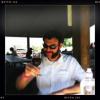But how do you know what to compose if you don't know what to do? Knowing the tools enables your brain to expand its limits of composition, so you are telling him to build a ladder when he doesn't know how to use a hammer and saw.
Seriously, this thread is derailing very badly so get it back on track before it gets closed, please.
As for what to do to get better at music, there's three things I do:
1) Listen. Go just listen to music and see what you can notice, disect, interpret, whatever with it. Figure out what parts you like and why, and what parts you don't like and why. Example: I listened to some chug-tastic metal with massive dissonance to find what dissonances I liked and didn't, and then tried to think about why I didn't like them. As a result, I am slowly learning how to use dissonance in an appealing manner by seeing how other people do it and how the audience responds. I have given a very specific example here but you can do this with about everything and every aspect of music.
2) Research. Go find books at the library, threads on the internet, videos on youtube about many things. Don't just get one on a specific subject either: watch multiple on similar subjects to see what common elements exist and where people's opinions differ. Not everyone thinks all good electric guitars are mid-heavy with a cut at 500hz or whatever, so see what is out there and absob as much as you possibly can.
3) Experiment. This is the biggest one of all. Just spending time messing around, tinkering, tweaking, recording, mixing, mastering, manipulating, doing it all will get you acoustomed to a setup and how to get sounds from your brain to your speakers. There are ways to assist by asking for feedback from others and forcing yourself to do exercises, but getting better at music is a voyage primarily of self-discovery. You learn the most by doing it yourself, and you learn the most when you try to do things you've learned or researched.
Hope that helps!










